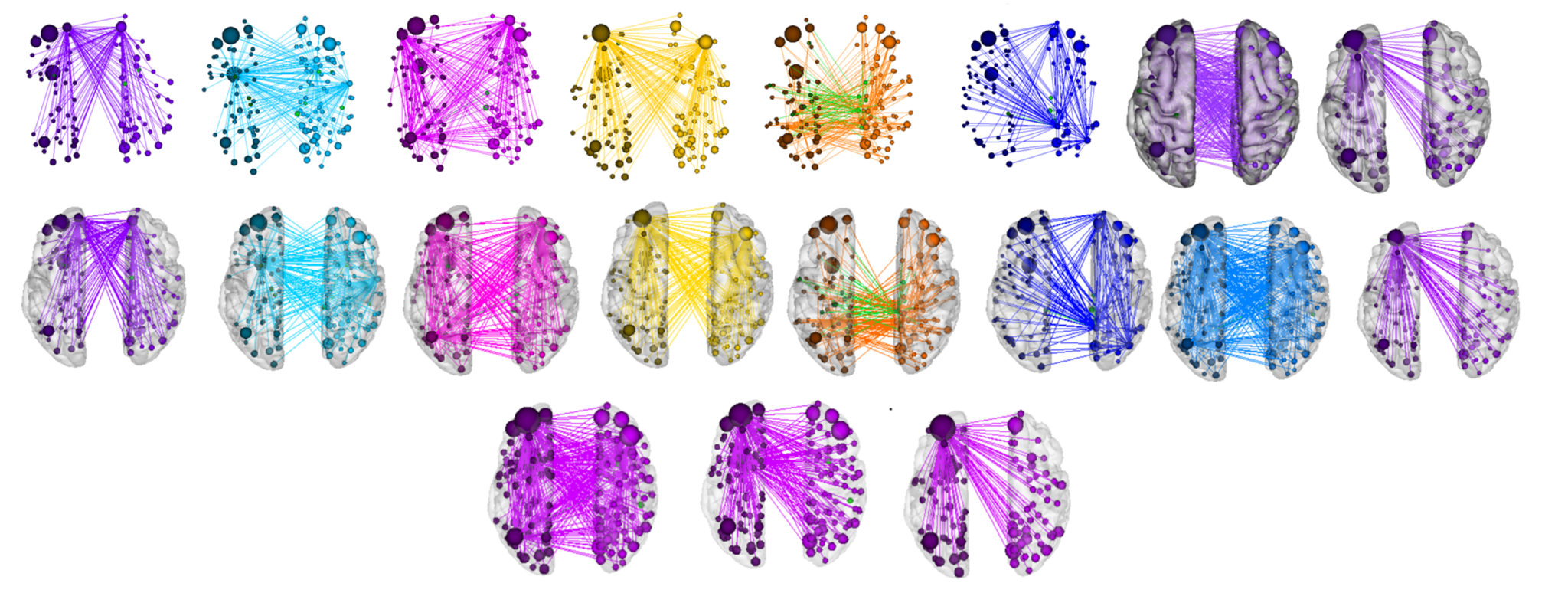With machine learning, Yale researchers peer into brain networks involved in child aggression
Machine learning shows that brain networks can predict child aggression, Yale study finds.

Courtesy of the Yale Child Study Center
Yale researchers are using a machine learning-based approach to reveal the connections between brain networks and child aggression — a symptom of child psychiatric disorders.
Childhood disorders may be associated with behavioral difficulties such as anger, outbursts or aggressive behavior at its extreme, which can derail child development in many ways. The study works on the intersections of several disciplines, including neuroscience, clinical research and developmental psychopathology. Yale researchers are using machine learning to investigate brain connectivity issues in children who display aggression, which could potentially lead to improved treatment strategies. The findings are published in the journal “Molecular Psychiatry.”
“Our research is focused on translational neuroscience,” said Karim Ibrahim, associate research scientist at the Yale Child Study Center and first author of the paper. “We want to understand how the brain works, and how neural connections across the entire brain relate to child mental health and how we can use this information about neural connections to inform treatments and diagnosis for mental health disorders.”
Ibrahim explained that neural models of psychiatric disorders have shifted from emphasizing dysfunction in specific or discrete brain regions to characterizing disruptions across large neural networks. Different from the previous studies that look at brain activation in specific regions, the researchers built on the brain’s “connectome” which describes the pattern of brain-wide connections to explore them at the network level.
“Connectome allows you to take a snapshot of correlations of brain activity across the whole brain in real time as the person is participating in fMRI experiments,” said Denis Sukhodolsky, the study’s senior author and associate professor in the Yale Child Study Center.
Researchers collected fMRI data from children aged eight to 16 while they observed faces making calm or fearful expressions. This task engages children’s brain states that are relevant to emotion generation and regulation, which are related to aggressive behavior. The data is broken down into brain signals, which through the connectome model can inform which portions of the brain are correlated to particular parameters of the task.
The researchers then applied machine learning analyses to the connectome model, and concluded that it is able to predict aggressive behaviors. To prove the reliability of the findings, the researchers tested them in the separate dataset from the Adolescent Brain Cognitive Development study with similar fMRI measures, similar behavioral measures and the same nine-year-old to 12-year-old age range. They found that the same functional connectomes or networks within the brain can predict childhood aggression in this new sample, and thus confirmed the replicability of their study.
Ibrahim noted that the dorsolateral prefrontal cortex — a hub for neural circuitry involved in the regulation of emotion — emerged consistently throughout all of testings in subgroups of children with aggressive behavior and disorders such as anxiety, ADHD and autism, suggesting that it is a consistent predictor of aggression.
As to the significance of this finding, Sukhodolsky said when comparing individuals who have one condition or disorder, and individuals who don’t have this condition or disorder, the result can generate a profile or brain map of brain activity that is associated with particular types of mental health diseases. The brain network therefore can characterize disruptive behavior in children regardless of specific diagnostic characteristics that bring them into clinical care.
Dustin Scheinost, co-author of the study and assistant professor of radiology and biomedical imaging, added that this study highlights the possibility of using brain networks to diagnose similar disorders and ultimately predict treatment outcomes. However, Scheinost emphasized this is a rather recent method and that there is still much research to be done before developing its clinical applications.
For future studies, Sukhodolsky suggested considering the ability of neuroscience models to predict response to treatment and thinking about how brain mechanisms of neurocognitive processes can inform development of clinical interventions. Ibrahim and Scheinost both suggested that future research is needed to understand how brain networks evolve in time, and if this is linked to adult aggression.
Founded in 1911, the Yale Child Study Center serves children and families from birth through adolescence.








